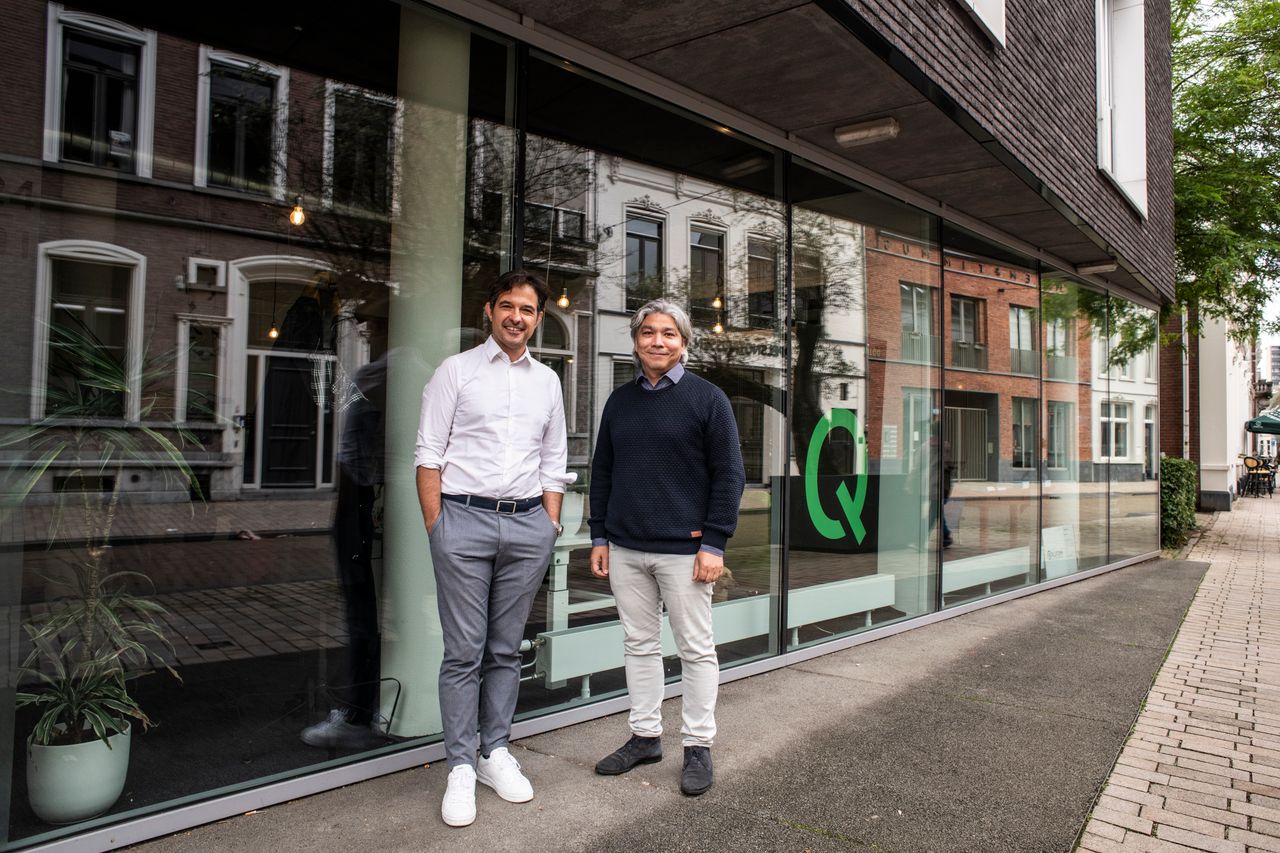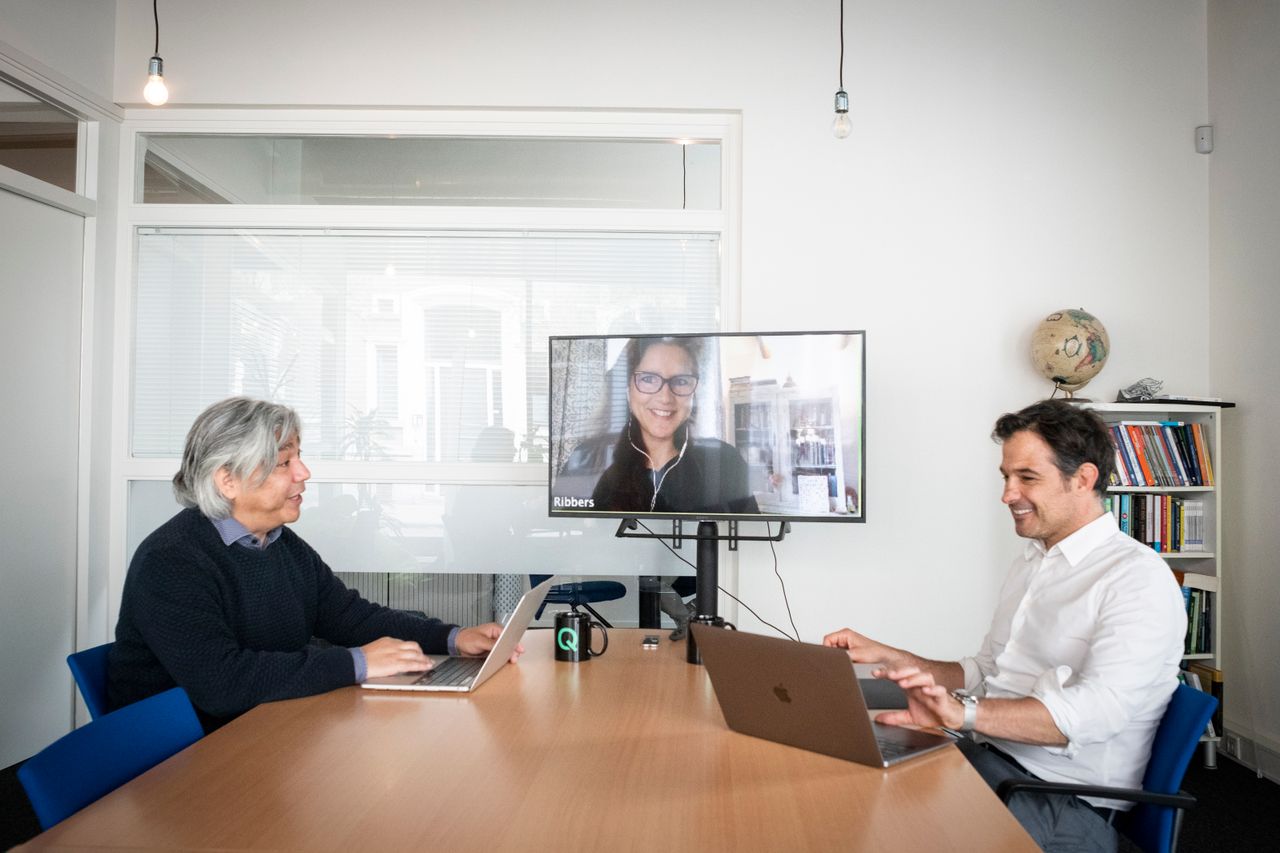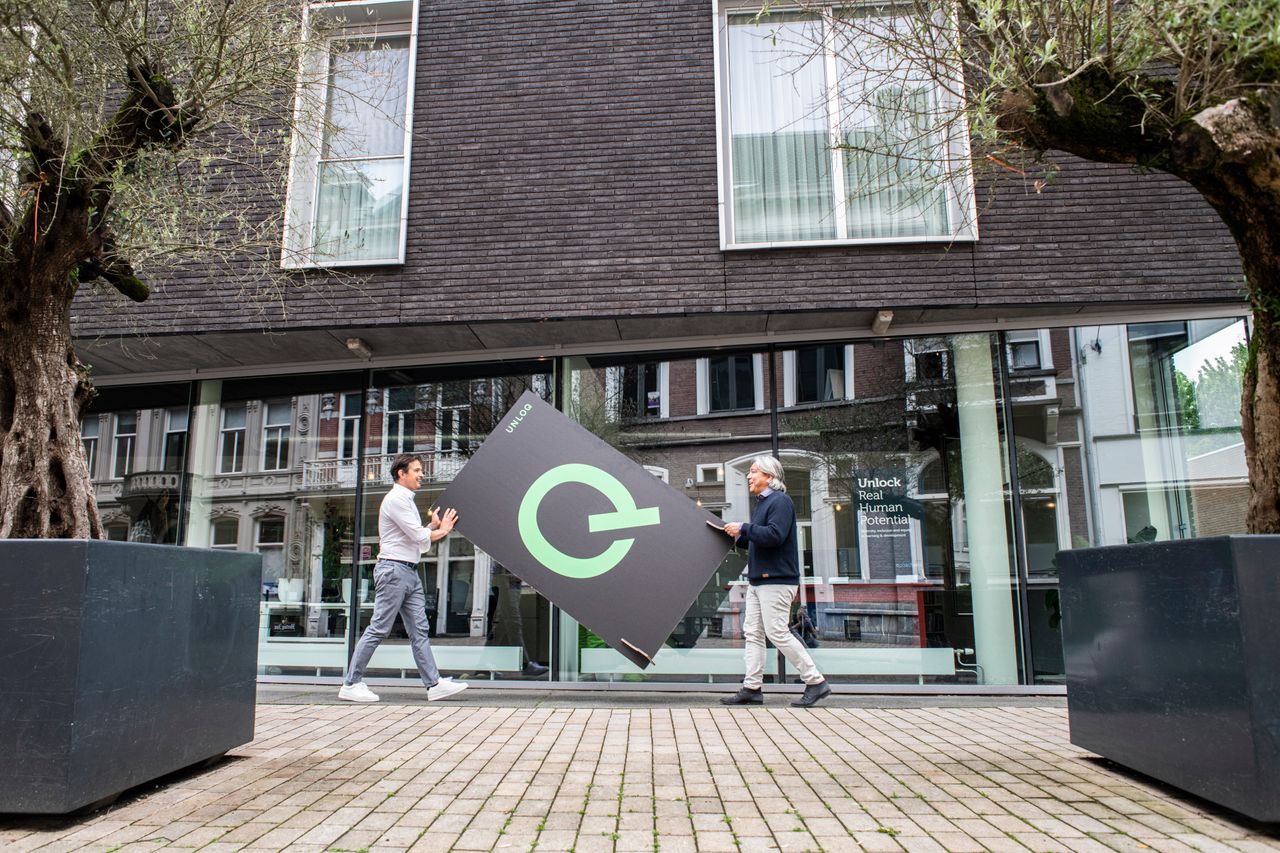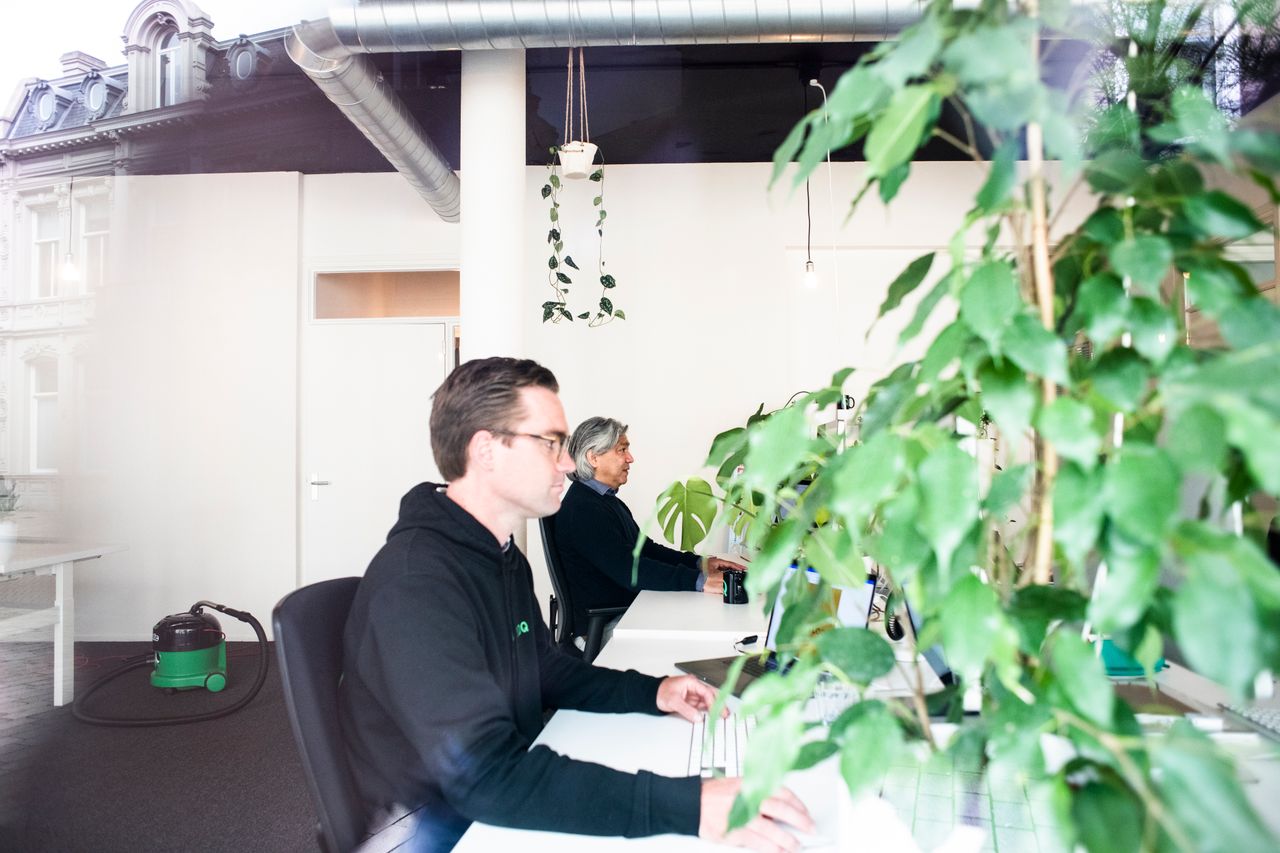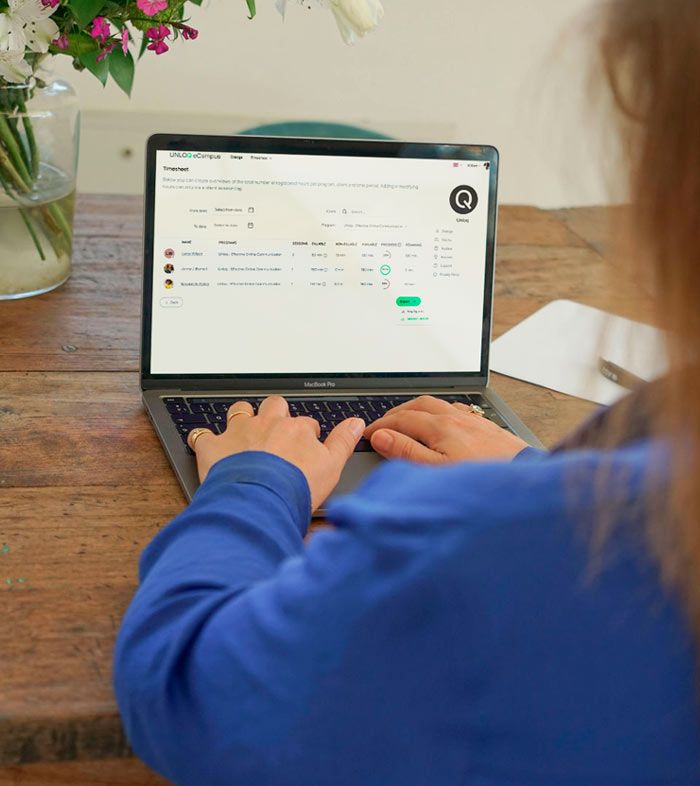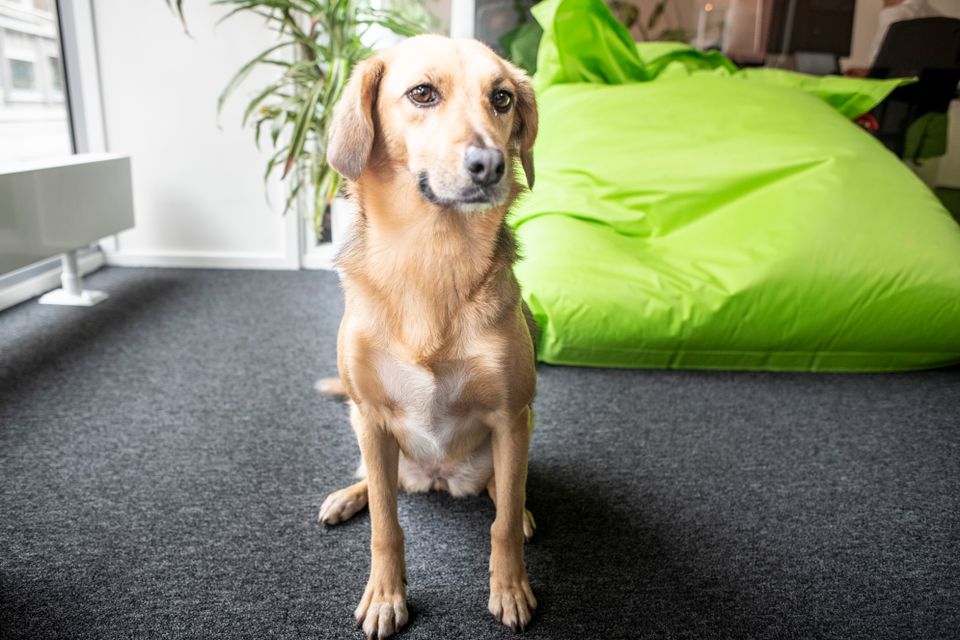UNLOQ makes it in Tilburg
"When you invest in effective behavior of leaders and teams, you ultimately contribute to a better society."
Entrepreneurship is pioneering. Getting your feet in the clay. It is taking profits and taking losses. To fall flat on your face and to celebrate your successes just as hard. Also in Tilburg, countless entrepreneurs are and step into that addictive roller coaster every day. In this series Make it in Tilburg talks to them so they can inspire you with their life lessons and failures.
A live conversation with Alexander Waringa at the headquarters on the Stationsstraat, including office dog, his companions Marc Coenen and Anne Ribbers talk along from Italy and Spain via digital channels. It is typical for UNLOQ, a company that specializes in online coaching and training to accelerate behavioral change, particularly in leaders and teams. They do this for an international market: large institutional organizations are clients, such as Ahold, Arcadis, BAM and Reed Elsevier. And in Tilburg itself: TIAS, School for Business and Society. But actually, Anne says, their unique learning and development method should be available to everyone. "If you invest in effective behavior of leaders and teams, you contribute to more effectively functioning companies and ultimately to a better society."
LESSON #1 DEVELOP THICK SKIN
UNLOQ's story takes us all over the world: to New York, Geneva, Nairobi, Beirut and Copenhagen, where the company's clients are based. To Rome and a mountain village in Spain, where companions Marc and Anne now live. To Friesland and Limburg, where Alexander and Marc are from. But the roots are here, in Tilburg. Anne and Alexander met each other at university - both were studying Industrial and Organizational Psychology - although Marc studied in Eindhoven, Tilburg was a more dynamic city as far as he was concerned. He joined the student association Olof and AISEC, where he met Anne. UNLOQ's headquarters are still located in Tilburg: easy to reach from different locations in Europe, affordable and more importantly, the shared history in this city is in the company's DNA.
The Accelerated Behaviour Change (ABC) model, key to their success today, is an outcome of the research at Tilburg University that Anne and Alexander co-led. Blended learning - online and offline - is an important part of it. Alexander: "Remember: ten years ago this was not as obvious as it is now. For coaching you have to be able to look each other in the eye, right? That was the prevailing idea. Whereas we showed that it is actually very effective if you do it in other ways." In the early years, the company, then called eCoachPro, found itself in a sea of rejection. Where did they get the energy to keep going? Marc, who is responsible for the commercial side of the business: "Of course, it starts with thinking carefully about your idea and product. And then: persevere. If it is well put together, keep believing in it. You need two things for that: persistence and a thick skin. That ensures that you can go on the next day with the same energy and focus."
LESSON #2 FOCUS, BUT DON'T DO IT TOO EARLY
Things are going well for UNLOQ. In the last four years, turnover has grown by forty percent, the company has won the FD Gazellen Award two years in a row, and the team has grown to eighteen permanent employees and 120 associates (freelance trainers and coaches) all over the world. "Pioneering involves finding a good product-market fit. In the beginning, we placed our bets on different horses", Alexander explains. eCarePro (for healthcare), eCollegePro (for education), a SaaS platform on which coaches and trainers could offer their services independently: they were all considered. "Until we had the rock-solid concept that is where we are now", Marc adds. "And that is: behavioral change for leaders and teams, especially at corporates, research institutions and non-profits. Large international companies, which can be served anywhere because of our approach." By first looking for the formula for success, with broad perspective, UNLOQ was able to become what it is today. Marc: "Now that we have found that focus and market, all our attention goes to that. By continuing to innovate, to stimulate ourselves to stay on top of the game. That means that we have said goodbye to everything that is not related to that. We want to continue in the Champions League in which we are now playing."
LESSON #3 BUILD ON YOUR STRENGTHS AND BE GENEROUS
The corona pandemic accelerated online meetings, coaching and teaching. Suddenly, everyone was doing it: from one-person companies to the largest training institutes. But online training and coaching is more than just moving everything you did offline to a digital channel, the entrepreneurs at UNLOQ know. That's why they decided to share their knowledge on a large scale during the pandemic. By partly opening up their knowledge platform, by sharing whitepapers and by giving the book that Anne and Alexander published earlier a substantial update. Alexander: "Things often go wrong online, and that's a shame. We thought that we, with our knowledge and experience, should help to make it a success. During the pandemic it proved to be necessary, so we did it." So sharing is free, but you can also make good money from it. Why is that? Marc: "I do not believe in fear of threats or of competitors taking something away from you. If you start from your own strengths and are generous in doing so, things will work out just fine."
For UNLOQ, corona meant that customers put the brakes on. Anne: "We had the choice: do we do that too, or do we step forward? We chose the latter. Sharing knowledge to help the market, and to position ourselves even more clearly as experts in the field of blended coaching and training. It worked. Since then, companies have increasingly come to us, rather than us to them."
LESSON #4 BRING HUMANITY BACK TO THE WORKPLACE
Working extremely hard, without even a pause for breath. That is what is happening now in Ukraine, among the thousands of aid workers who are helping citizens from various organizations to a safe place to stay, or to care that they so desperately need. But if you can't breathe yourself, you fall down. Then you can no longer care for the other. What does that have to do with UNLOQ? From this company, emergency workers there get that space to breathe again for a while. Through the Emergency CoachDesk, organized by UNLOQ, to talk about the terrible things you saw. Gathering tools and courage to go on again. Serving those who serve is desperately needed. Not only in Ukraine, also in Colombia, Lebanon (after the huge explosion in the port area) and Afghanistan UNLOQ is or was present.
It all seems miles away from UNLOQ's other missions, you might say. The work of an employee at Ahold is not remotely similar to that of international aid workers in war zones. But what is guiding in UNLOQ's approach, Anne explains, is that people are central. Leaders are good leaders when they give their employees trust and responsibility - seeing them as people, not as a means of production - which in turn makes for employees who function better and are sick less often. There is more engagement and a better atmosphere. When everyone works more finely, better - whether it's a corporate or a crisis team - it ultimately makes for better cooperation. Bring humanity back to the workplace, is the credo. Alexander: "In our work for the Dutch Police this is very clear. Ultimately, what we do has an effect on how the officer on the street can do his job. And that makes neighbourhoods, cities and villages safer. As far as I'm concerned, that's definitely something to be proud of."
You can read more about UNLOQ at unloq.org.
